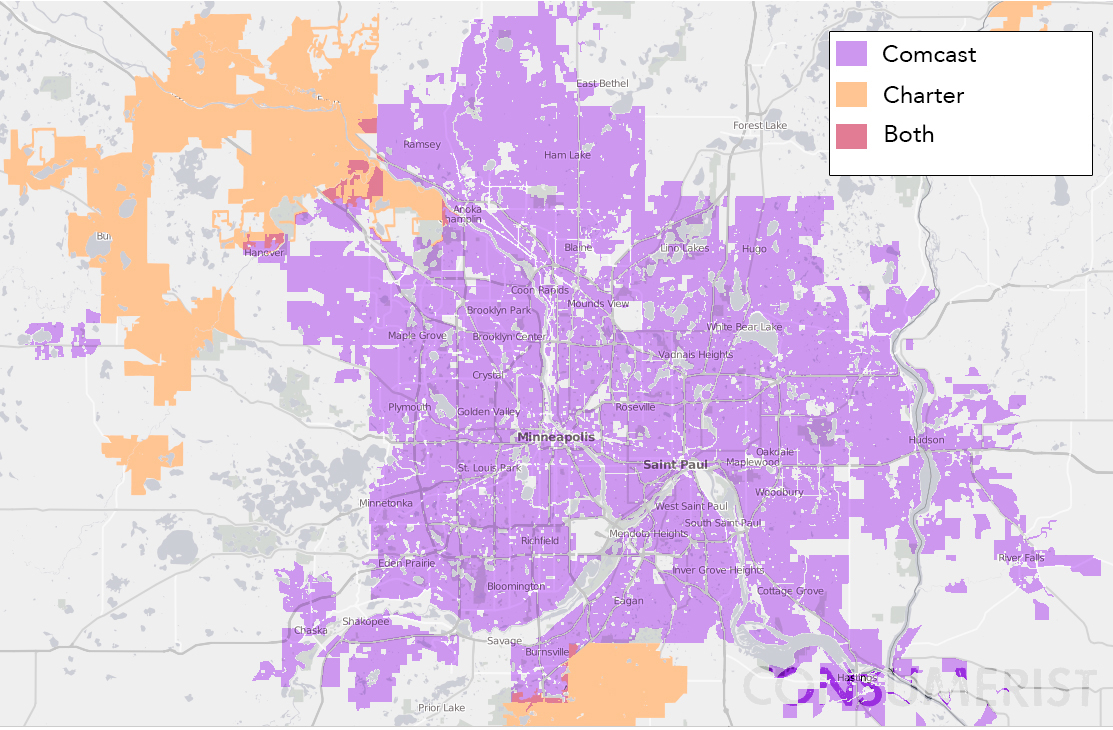Sen. Al Franken: Still Not Enough Competition For Cable & Internet Access
Last year we used maps to show how little competition there is for cable and broadband customers in many U.S. markets where consumers often have one choice for affordable high-speed Internet access.
A subsequent FCC report confirmed that only 36% of the country has two or more choices for broadband, and fewer than 10% have three or more options.
And as we showed with the case of one Washington state homeowner, sometimes the government data shows that you have multiple options for wired broadband when in fact you have none.
The end of the Comcast/TWC merger doesn’t make the broadband market more competitive. Even if you were to break Comcast up into the companies it acquired over the years to get to its current size, competition would still be effectively nonexistent. That’s because most cable providers have exclusivity deals in the areas they operate. So even if you were to shatter Comcast into 100 smaller operators, each would likely still be the sole broadband choice for consumers in their respective market.
In an op-ed piece for Time.com, Sen. Al Franken from Minnesota — one of the few federal lawmakers openly opposed to the merger — reviews the lessons learned from the Comcast/TWC failure, including that “there is far too little competition in the cable and broadband markets.”
Given the lack of localized competition, and the fact that Comcast is still the dominant provider of broadband for U.S. consumers, Franken contends that there is “Not exactly an incentive for the company to provide first-class service, as many Comcast customers can attest.”
The senator says that over the last year, as the merger made its way through the regulatory review process, “other companies who did business with Comcast told me they were afraid go public with their opposition because they feared retribution.”
Comcast had maintained throughout the process that the savings from the TWC acquisition would allow it to innovate but Franken counters that “Innovation… comes from competition. And in important sectors of our economy, there still isn’t nearly enough competition.”
Want more consumer news? Visit our parent organization, Consumer Reports, for the latest on scams, recalls, and other consumer issues.


